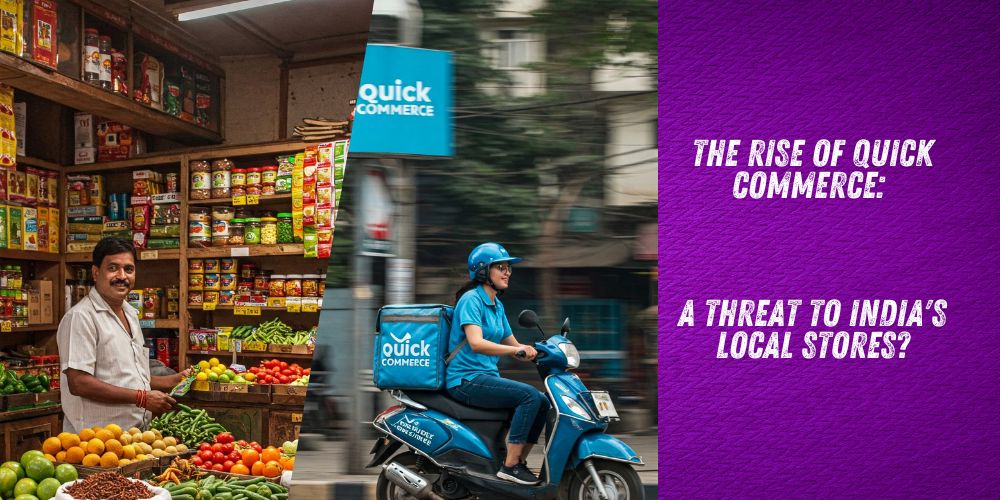Introduction
We live in a world of instant gratification. Need groceries in ten minutes? A new phone charger in fifteen? Quick commerce platforms promise and deliver, transforming our shopping habits. But while we revel in the convenience, a quieter struggle is unfolding on our very doorsteps: the battle faced by our local small sellers and shopkeepers.
Let’s face it, quick commerce is undeniably impressive. The seamless app experience, the lightning-fast delivery, it’s a testament to technological advancement. But behind the glossy interface and the promise of “deals,” a critical question looms: at what cost?
The Investor-Funded Discount Dilemma:
The core of the issue lies in the unsustainable discount model employed by many quick commerce giants. These discounts, often far below the actual product cost, are largely funded by venture capital. It’s a strategy designed to acquire customers rapidly and establish market dominance. But this aggressive pricing creates an uneven playing field.
Your local “Kirana” store, the backbone of many neighborhoods, cannot compete with these artificially low prices. They operate on thin margins, relying on consistent sales and community relationships. They don’t have access to millions in investor funding to subsidize their prices.
The Erosion of Local Economies:
When customers flock to quick commerce platforms for discounted goods, they divert spending away from local businesses. This has a ripple effect:
Reduced Revenue: Small sellers experience a significant drop in revenue, making it difficult to cover operational costs and maintain their livelihoods.
Job Losses: As businesses struggle, they may be forced to reduce staff or even close down, leading to job losses within the community.
Weakened Community Ties: Local shops are more than just places to buy goods; they’re social hubs, fostering community connections and providing personalized service. The rise of quick commerce threatens to erode these vital ties.
Supply Chain Disruption: Many small sellers source their goods from local suppliers and distributors. When their businesses suffer, it impacts these smaller players in the supply chain.
Dependence on Giant Platforms: The consumer gets used to the discounts and the ease of the app. This creates a reliance on large companies, and if those companies change their business model, the consumer has very little choice.
Convenience vs. Sustainability:
Of course, convenience is a valuable commodity. We’re not suggesting a complete boycott of quick commerce. However, we need to consider the long-term sustainability of this model.
Fair Pricing: Quick commerce platforms can and should charge a premium for the convenience they offer, but they shouldn’t rely on unsustainable discounts that undercut local businesses.
Supporting Local: As consumers, we can make conscious choices to support our local shops and sellers. Even small purchases can make a big difference.
Policy Intervention: Governments and regulatory bodies need to consider policies that create a level playing field for small businesses and prevent predatory pricing practices.
Platform Support: Quick commerce platforms can offer tools and programs to help local businesses integrate into their systems, giving them an opportunity to expand their reach without being completely displaced.
The Future of Retail:
The future of retail doesn’t have to be a zero-sum game. Quick commerce and local businesses can coexist. But it requires a shift in perspective. We need to value the contributions of our local sellers and recognize the importance of a vibrant and diverse retail ecosystem.
Let’s not allow the allure of instant gratification to blind us to the long-term consequences. Let’s champion a retail landscape where convenience and sustainability go hand in hand, ensuring that our corner stores continue to thrive alongside the click.
